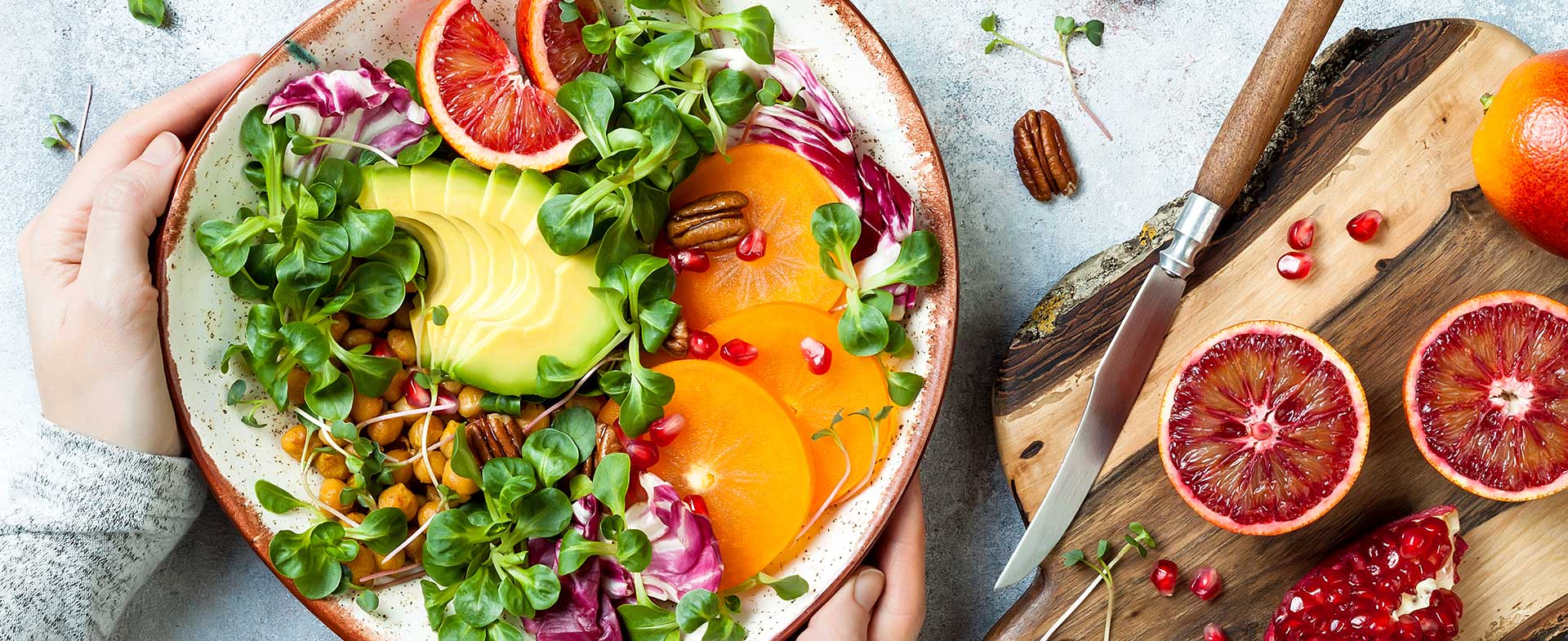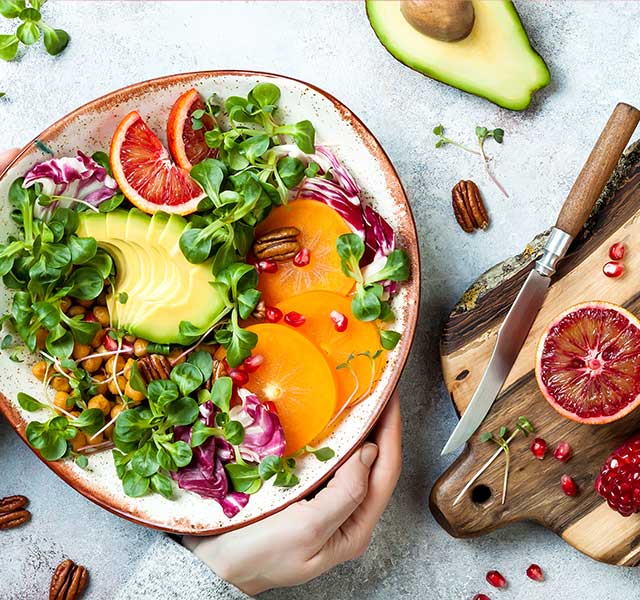Doctors, dietitians and specialists around the world recommend an anti-inflammatory diet: It doesn’t only help to maintain a healthy weight, but it’s also hugely beneficial for our overall health.
Inflammation isn’t inherently bad—it’s the body’s natural way of repairing itself. Acute, or short-term, inflammation occurs when you hurt yourself or get sick, like when you get a cut, break a bone, or come down with a cold. But when you’re in a state of chronic inflammation—which can be triggered by eating unhealthy foods that stimulate an inflammatory response in the blood—it can lead to a whole host of health problems.
“Chronic inflammation is thought to be at the root of a number of diseases. It is like a smoldering fire inside of your body,” says Nancy Park, a registered dietitian nutritionist with Henry Ford Health. “The risk of heart disease, obesity, inflammatory bowel diseases, arthritis, Alzheimer’s, psoriasis, and more could be reduced with an anti-inflammatory diet, as the nutrients in these foods contain properties known to ease inflammation. An anti-inflammatory diet could improve health conditions, lead to a longer life, and even slow the aging process.”
What Does An Anti-Inflammatory Diet Consist Of?
In a nutshell, it’s what you would expect: a diet rich in unprocessed, fresh foods. Go for colorful fruits and vegetables like tomatoes, grapes, berries, cherries, and deep green leafy veggies; fiber-rich whole grains like oatmeal and brown rice; and legumes like chickpeas, beans, and lentils. Look for healthy fats containing mono and polyunsaturated fat such as olive oil, nuts and fatty fish.
Fresh herbs and spices such as turmeric, ginger, rosemary, cumin, garlic, cinnamon, cardamom and chili flakes are all also rich in antioxidants and can add flavor to your dishes while offering a host of anti-inflammatory benefits.
“Grow herbs in your garden or in pots on your windowsill,” Park says. “Extra flavor from these spices and herbs can also reduce the amount of salt you use, which is especially important for those with high blood pressure.”
What Are Inflammatory Foods To Stay Away From?
Inflammatory foods are highly refined or processed, and they contain a high amount of saturated fats. Processed meats like hot dogs and lunch meats, and deep-fried vegetables and meats are inflammatory. Same goes for whole milk and whole milk dairy products, so look for lower fat options. Refined carbs and simple sugars like white bread, candy, pastries, soda, sugar, honey, and high fructose corn syrup are also inflammatory, as they cause blood sugar spikes that trigger inflammation. “Overconsumption of these foods have been linked to heart disease, diabetes, cancer and obesity,” Park says.
What Does A Day Of Anti-Inflammatory Eating Look Like?
An anti-inflammatory diet isn’t restrictive: there are tons of fresh, healthy (and easy!) options to keep your dishes interesting. Variety is key. Here, Park shares a day of meals:
- Breakfast: Start with oatmeal mixed with blueberries, a tablespoon of wheat germ, and fat-free milk. You could also try non-fat Greek yogurt with strawberries and chopped walnuts.
- Lunch: Make a chopped taco salad sandwich. Fill a whole grain tortilla with pinto beans, zucchini, salad greens and any other veggies of your choosing. Top it off with guacamole and salsa.
- Snack: Cut up carrots, cucumber, celery and radishes and dip them in hummus. You could also make your own dip by mixing half an avocado with slivered almonds and a squeeze of lime for a snack filled with healthy fats and antioxidants.
- Dinner: Try quinoa and skinless chicken tabbouleh bowls. Cook quinoa and chicken, and mix them with grape tomatoes, green onions and olives. Garnish with mint and basil and drizzle with olive oil.
- Dessert: If you have a hankering for something sweet, opt for dark chocolate with at least 70% cacao. “Dark chocolate contains iron, magnesium and antioxidants,” Park says. “It still has some sugar, fat and calories, so don’t overindulge, but a small amount of dark chocolate once in a while can have health benefits.” A healthier dessert option? Dark-chocolate drizzled strawberries.
Can You Drink Alcohol On An Anti-Inflammatory Diet?
Overconsumption of alcohol is inflammatory, but red wine in moderation can have antioxidant benefits. “If you don’t drink, I wouldn’t recommend starting, but red wine contains an antioxidant called resveratrol, which is known to protect against heart disease,” Park says. “There are benefits to red wine when consumed in limited amounts in the context of an overall healthy lifestyle.” The American Heart Association recommends no more than one four-ounce glass of red wine for women per day, and no more than two four-ounce glasses for men per day.
How Can I Supplement The Anti-Inflammatory Diet With Healthy Lifestyle Choices?
Even just 30 minutes of daily exercise has anti-inflammatory benefits. Same goes for getting quality sleep, not smoking, and taking time to reduce stress and simply enjoy your life.
“Take walks, go for bike rides—all of these behaviors are part of an anti-inflammatory diet, which is not really a diet at all, but a way of life,” says Park. “It’s a whole lifestyle to embrace that leads to a healthy mind and body.”
To find a doctor or registered dietitian at Henry Ford, visit henryford.com or call 1-800-HENRYFORD (436-7936).
Nancy Park is a registered dietitian with the Henry Ford Center for Health Promotion and Disease Prevention.



